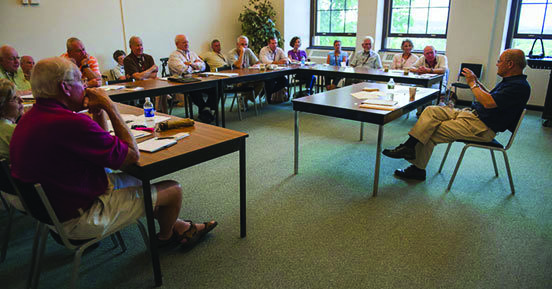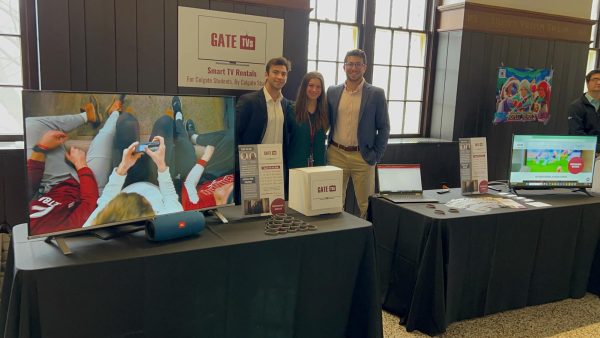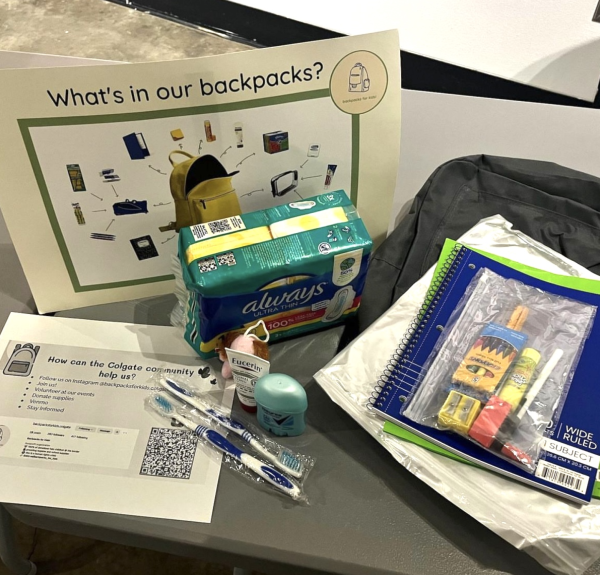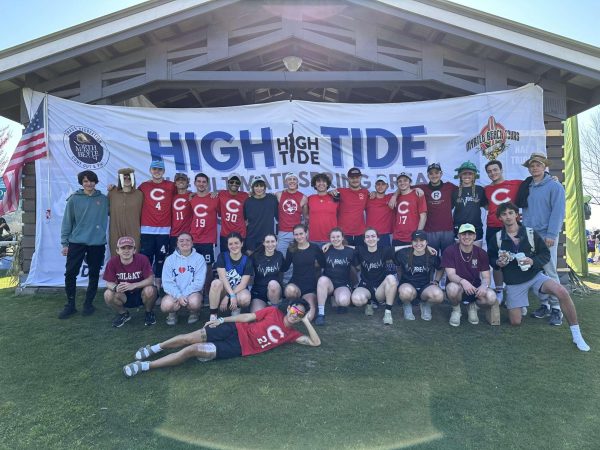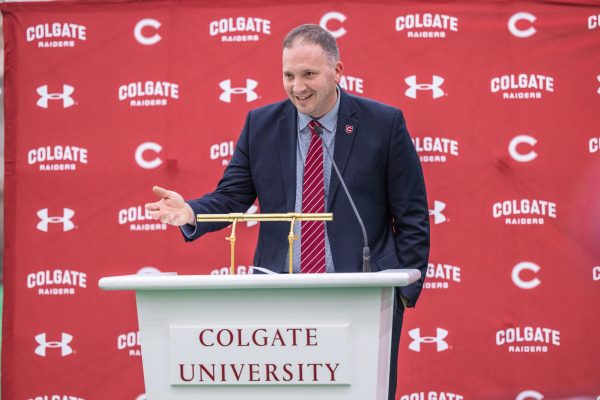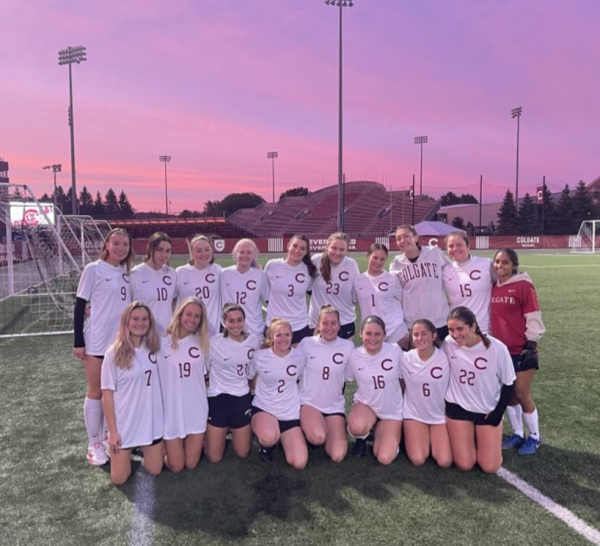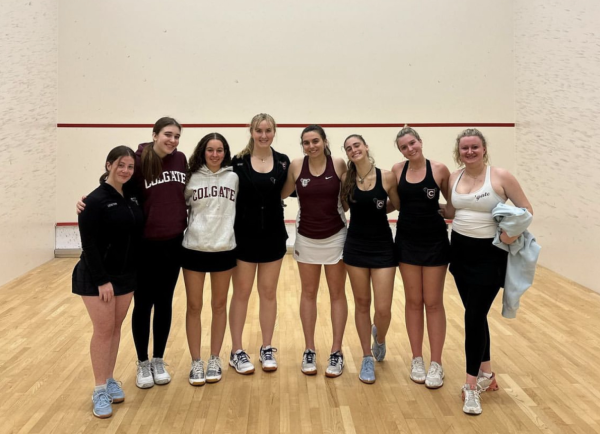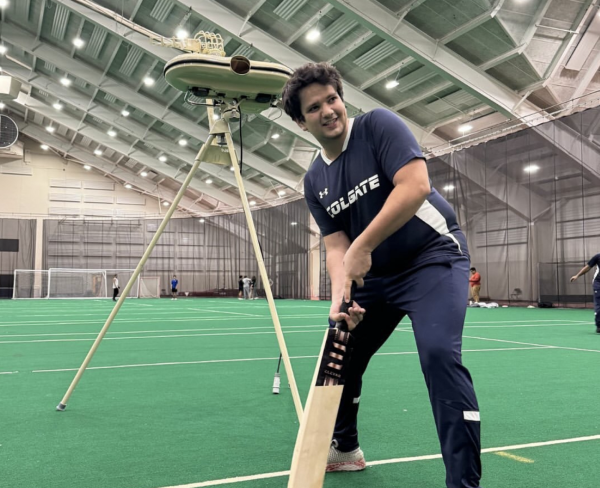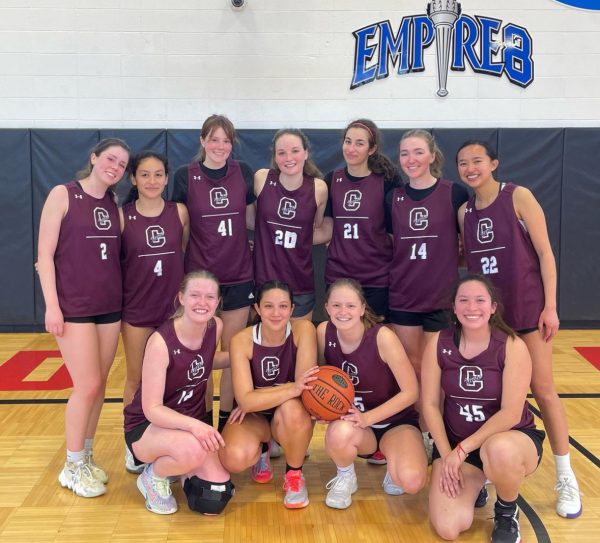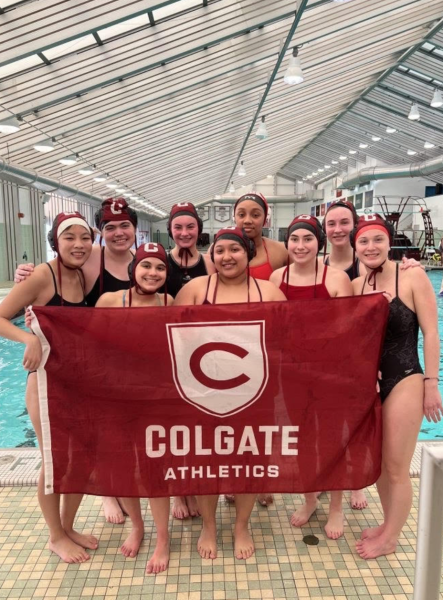The Lifelong Learning Program Community
The Lifelong Learning Program is a collaboration between Colgate University and the local Hamilton community through the Upstate Institute providing an opportunity to experience the joy of learning at any age. This program is a community-based collaboration sponsored by Colgate University to provide adults with ongoing education for the enrichment of their lives in a diversity of fields. Without any previous experience or homework, this is a very popular opportunity for Hamilton community members
Program coordinator Rachel Amann-Burns oversees the logistics of the program and works to organize a diverse and interesting curriculum each semester. Amann-Burns expressed the joy she gets in her position working for the program.
“I really enjoy watching folks in retirement who are really invested in what they’re doing and really interested in continuing to learn and engage with things. They are so active, inspiring, knowledgeable and have rich lives and are continuing to give to the community in a really big way and I really appreciate that,” Amann-Burns said.
President of the Lifelong Learning Program David Hopper explained how his membership in this program helped him find community.
“My wife and I moved to Hamilton just over 10 years ago. We had no affiliation with Colgate and we had never lived in this area before, but when it came time for us to retire we wanted to live in a small college town. We visited a lot and identified Hamilton and absolutely have no regrets. The Lifelong Learning Program was a very easy interface between the community and the university for us. There’s no tests, there’s no homework, there’s no pressure but it exposes us to many Colgate facilities and Colgate faculty and also lets us meet a lot of people in the community. For a newcomer in the community it was a perfect bridge and way to find out what’s going on and meet a lot of people,” Hopper said.
Founded in 2007, this Lifelong Learning has created a wide variety of programs and built a community through its membership for the past fourteen years. Past courses have ranged from political classes taught by Professor Tim Burns, to “How to Watch Hockey Like a Canadian” taught by women’s ice hockey coach Greg Fargo, to pottery classes taught by Colgate students. When choosing events, the program strives to offer a breadth of different topics.
“A curriculum committee [is made up of] of about six community members who look at the different professors and think about what topics might be of interest to the community and their membership and try to put together a wide variety of offerings taught by both faculty and community members. They recently started planning out a year in advance so they can make sure they cover a broader range of topics and not get repetitive and a lot of times they are trying to get people outside and try to learn more about the area and the region. We try to make sure the topics are relevant now and connect to people’s lives,” Amann-Burns said.
As COVID-19 has affected Colgate and every aspect of our society, the Lifelong Learning Program was forced to adapt in order to continue offering courses during the pandemic.
“I know we have a number of members who are not interested in participating virtually and it’s just not what they want to do; they appreciate the in-person interactions and really with this demographic it’s important for people to get out of their homes and see one another in person. I will say the longer this goes on the more these [virtual interactions] become necessary as a means for people to see one another even if they can’t be near one another. So, whereas at first people were really put off by the idea, I see more people coming around and finding it to be more necessary because there is not really an end in sight,”Amann-Burns said.
Hopper explained how the program has changed from the Fall to the Spring semester. He said that should weather and circumstances allow, he would love to shift to in-person meetings and classes outdoors, or to the program’s usual space of the Hamilton Public Library.
“In the Fall of 2020 we had a completely virtual list of courses which we think went quite well and was quite a change for us and now we’re in the beginning of our Spring program and we think that for matters of caution we need to plan to stay in the virtual world for the Fall. We think our members will be more comfortable with that and we don’t know yet what the availability of meeting facilities will be,” Hopper added. “We’re trying to keep things virtual and if we have the possibility to shift into a live, in-person meetings or classes we’d love to go that way.”
Virtual learning has also helped the program reach more community members than in-person programs allow.
“Our first session this semester was with Ron Hoham, Professor Emeritus of Biology at Colgate, and he invited people from all over the world to attend his session and he had probably 60 people come, 30 of which might have been former colleagues within his field, and it really changed the discussion and we wouldn’t be able to do that if we were in-person so it adds another level of interest and an educational level that we didn’t have before… I think sometimes they were [previously] geared around people with much more flexible schedules and now it allows that flexibility to other folks as well,” Amann-Burns said.
Hopper echoed this sentiment, saying the virtual platform has allowed for more participation by eliminating capacity, weather and availability issues. Hopper attributed much of the program’s success in shifting to a virtual program to support from Colgate, including Zoom and technical support.
“The room [we previously used] in the library has a capacity of about 50 people and, not often but occasionally, we had to turn people away because we didn’t have enough capacity for some of the more popular classes. In the virtual world we can have as many attending who are interested. Also, we don’t have problems with the weather,” Hopper said. “We had a program last week and it was pelting down snow outside and that probably would have meant many people who were interested wouldn’t have made the trek to the library but, in the virtual word, everybody can be warm and cozy at home and still attend and they can also attend from greater distances… We’ve tried to find a silver lining to the challenges and we’re pleased with the way we’ve adapted, and a lot of that is thanks to the resources Colgate provides.”
Amann-Burns said the pandemic has even produced questions about the future of the Lifelong Learning program.
Most participants are of retired age, however these programs are open to all Hamilton community members including Colgate students. Scholarships are available to cover the cost of membership if one cannot afford it. The membership fee is waived for all Colgate students.
A list of courses being offered can be found on Colgate’s calendar of events or at https://www.colgate.edu/community/lifelong-learning.


